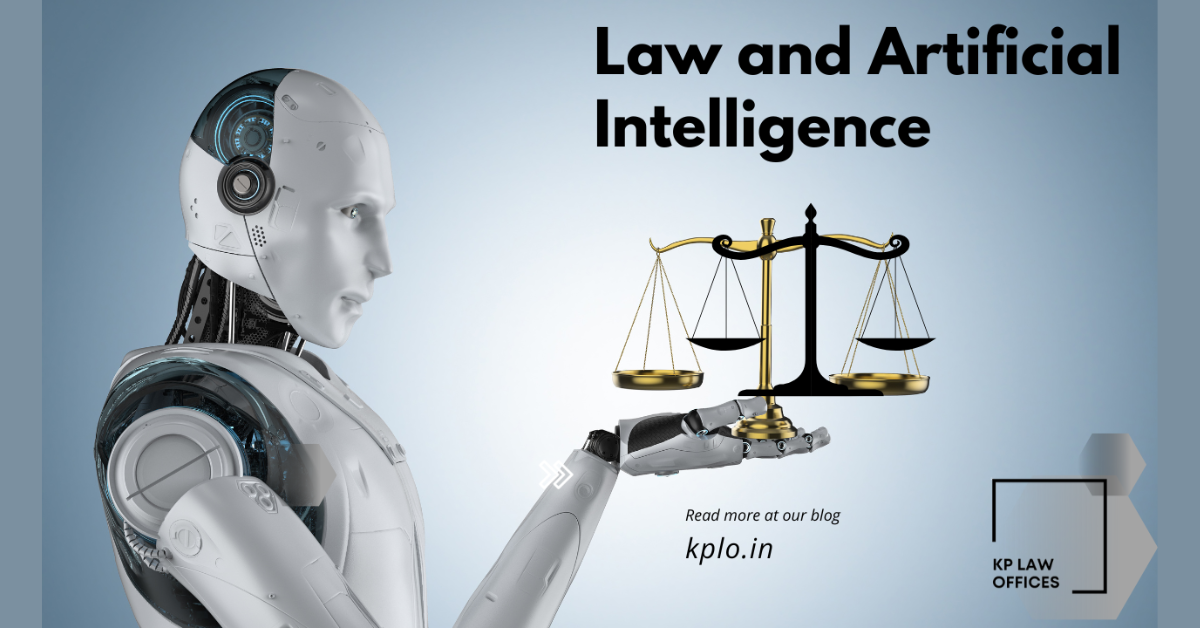Artificial Intelligence (AI) is transforming industries, including law, healthcare, finance, and governance. While AI enhances efficiency and decision-making, it also raises significant legal and ethical concerns.
Who is responsible when an AI system makes an error? How can governments regulate AI-based decisions? What about data privacy and security? These are pressing questions that demand legal solutions.
This blog explores the challenges, existing laws, and future legal considerations regarding AI in India and globally.
1. Understanding Artificial Intelligence in Law
AI refers to machines or software that can perform tasks requiring human intelligence, such as learning, decision-making, and problem-solving.
Types of AI in Legal Contexts:
- Predictive Analytics: AI predicts case outcomes based on past legal judgments.
- Automated Contracts: Smart contracts execute agreements without human intervention.
- AI in Policing: Facial recognition and predictive policing raise privacy concerns.
- AI in Judiciary: Some countries experiment with AI-assisted legal rulings.
These applications demonstrate the potential of AI in law, but they also pose challenges related to accountability, bias, and ethics.
2. Key Legal Challenges of AI
1. Liability and Accountability
- Who is responsible for AI decisions? If an AI system wrongfully denies a loan or misdiagnoses a patient, is the developer, user, or manufacturer liable?
- Current Laws:
- India’s IT Act, 2000 addresses cyber liability but lacks AI-specific rules.
- Product Liability Laws hold manufacturers accountable, but AI is dynamic, making liability unclear.
2. Bias and Discrimination
- AI models are trained on historical data, which may contain biases.
- Example: Facial recognition software has been found to misidentify minorities, leading to wrongful arrests.
- Legal Solutions:
- Anti-discrimination laws must extend to AI-based decisions.
- Transparency mandates to audit AI models for biases.
3. Data Privacy and AI
- AI relies on vast amounts of personal data, raising concerns about privacy and misuse.
- India’s Data Protection Laws:
- The Digital Personal Data Protection Act, 2023 regulates data collection but lacks AI-specific guidelines.
- The EU’s GDPR imposes stricter AI transparency rules.
4. AI in Surveillance and Free Speech
- Governments use AI for mass surveillance and censorship, raising concerns about civil liberties.
- Example: AI-driven monitoring of social media may restrict free speech.
- Legal Considerations:
- Courts must balance national security vs. privacy rights.
- Stronger data protection laws are needed to prevent misuse.
5. Intellectual Property (IP) Rights and AI
- Can an AI own a patent or copyright?
- Courts worldwide debate whether AI-generated content should be attributed to AI or its developer.
- Current Scenario:
- India’s Copyright Act, 1957 does not recognize AI as an “author.”
- The US and UK require human authorship for copyright protection.
6. AI in Judiciary and Automated Decision-Making
- Some courts use AI to predict case outcomes, but should AI be allowed to make binding legal decisions?
- Legal Concerns:
- AI may lack human reasoning in complex legal cases.
- AI-driven judgments could violate fair trial principles.
- Solution: AI should assist judges but not replace them in critical decision-making.
3. Global AI Regulations and Legal Approaches
1. European Union (EU) AI Act
- The EU AI Act (2024) proposes a risk-based approach:
- High-Risk AI (e.g., in healthcare, policing) → Strict regulations.
- Banned AI (e.g., mass surveillance) → Prohibited use.
2. United States AI Policy
- The US promotes self-regulation but is developing laws to ensure AI accountability and fairness.
- Biden’s Executive Order (2023) pushes for AI safety guidelines.
3. India’s AI Legal Framework
- India currently lacks a dedicated AI law, but existing laws like:
- IT Act, 2000 (cyber laws)
- Personal Data Protection Act, 2023 (data privacy)
- Consumer Protection Act, 2019 (liability)
- Criminal Laws (BNS, 2023) (AI-related offenses)
- The Government is drafting AI regulations to ensure accountability.
4. Future Legal Considerations for AI
1. AI Liability Laws
- Define accountability in AI failures.
- Introduce AI insurance for businesses using AI-driven products.
2. AI Ethics and Transparency Rules
- Mandate AI audits to check for bias and fairness.
- Explainability Rules: AI must provide reasons for decisions, especially in finance, healthcare, and legal sectors.
3. Stronger AI-Specific Data Protection Laws
- Stricter regulations on AI-based surveillance and data collection.
- Consent mechanisms before AI can use personal data.
4. AI in Judicial and Law Enforcement Guidelines
- AI must not replace human judgment in criminal sentencing.
- AI tools in policing must be tested for bias before deployment.
5. International AI Governance
- Global AI laws should ensure ethical AI use across borders.
- The United Nations and G20 AI Summits are working on common AI legal frameworks.
Conclusion: The Need for AI-Specific Laws
Artificial Intelligence is a double-edged sword—it brings innovation but also legal and ethical dilemmas. India and the world must develop AI-specific laws that ensure accountability, fairness, and data privacy.
As AI technology evolves, legal frameworks must adapt to ensure human rights and justice remain protected in the AI-driven era.

